
8 minute read
COMPASSION IN ACTION. We don’t
COMPASSION IN ACTION
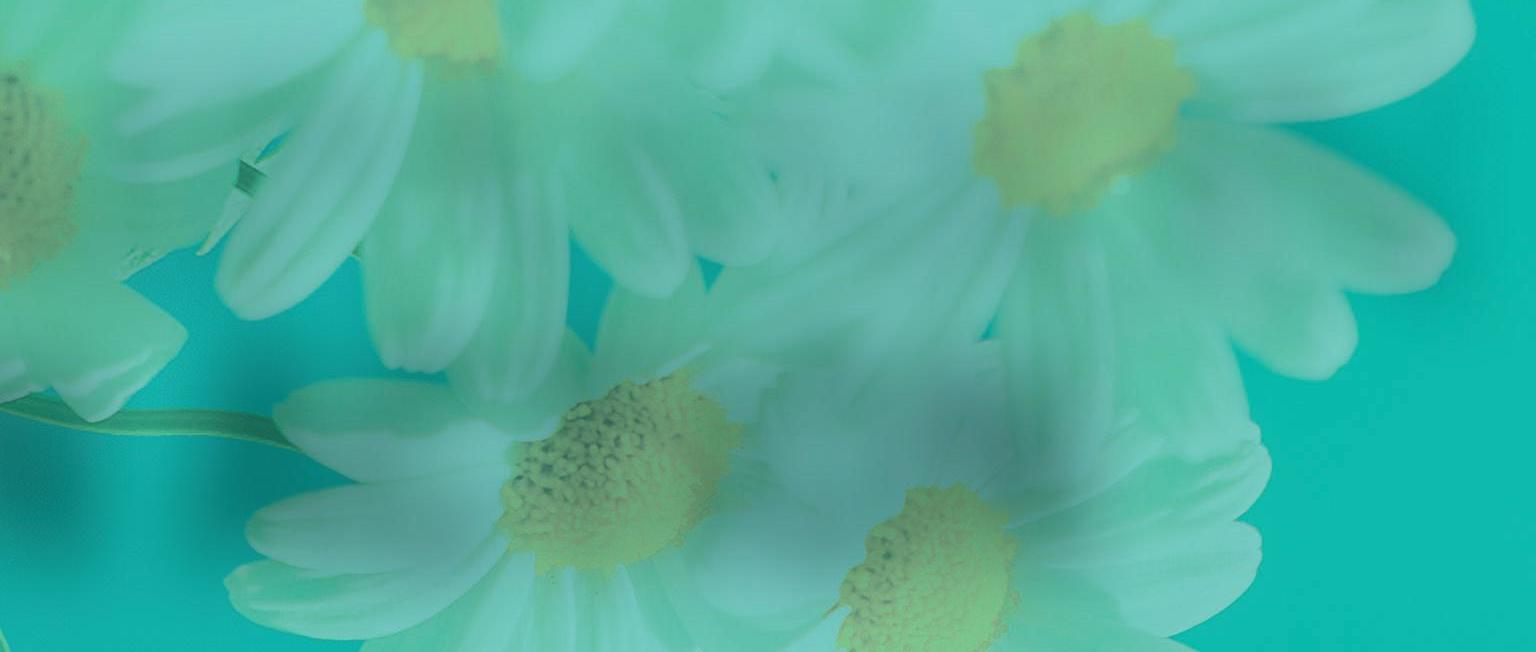
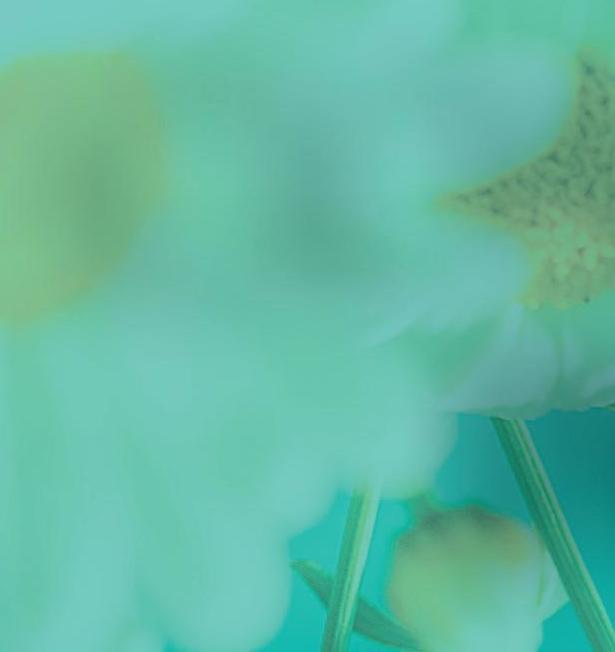

WE DON’T HAVE SPACE TO TELL ALL OF THE STORIES OF CARE AND COMPASSION WE’VE SEEN IN THESE CHALLENGING TIMES. HERE ARE JUST A FEW.
GLADYS DAVIS, mother of a recovered COVID-19 patient “C an you imagine knowing your son is sick with a deadly illness, but you can’t go to see him? My son, Vallee, went to Clara Maass with COVID-19 on March 27, and by April 1 he had to be put on a ventilator.
I was calling on God because I’m a believer, but I’m also human. God says just give it to him and leave it, but we always want to take it back, and it’s very hard.
Finally, one morning I went into the lobby at Clara Maass, and the security guard told me I couldn’t go up. I knew about the no-visitors policy, but still, as a mother, I just felt so helpless. The guard told me to sit down and she would get someone for me. While I was sitting there, sunlight beamed through the windows above the doors of the lobby, right into the chair where I was sitting, and I felt it go right through me.
That’s when Joe [Wojtecki, Assistant Director of Patient Experience] came down. He gave me his number and



Vallee Davis hugs Joe Wojtecki of the Patient Experience Department after an emotional clap-out.

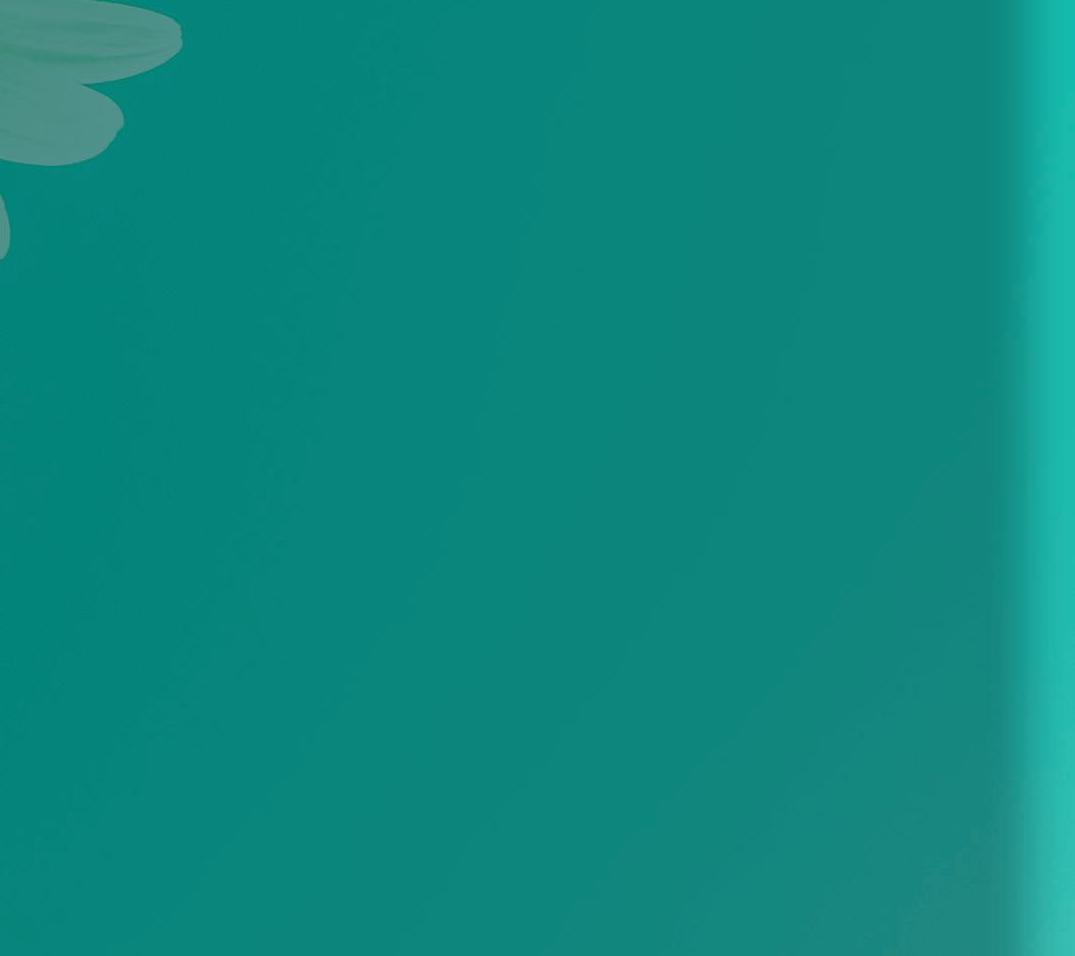


promised he would be back in touch with me soon, and he was. Joe offered to do video calls so our family could see and talk to Val. Even though Val was sedated and unresponsive, I could see that he was well taken care of. A group of eight or nine of us had a prayer group, and we would all be on the video call and pray together for him.
Joe was a godsend and so was everyone else who works there. I would call several times a day, and the nurse would give me an update on my son’s condition. The case manager would call me. They played music in his room to stimulate him. They’d show me his face on the iPad and say, ‘He looks good, Mom, he looks good!’
Val’s 45th birthday was April 18th, and I couldn’t sleep at all the night before. I called first thing in the morning and the nurse said, ‘Mom, why are you worried? We’ve already given him a bath, we already sang Happy Birthday, we already prayed for him this morning.’ They had made birthday cards and put them up on the walls of his room.
Th e doctors had been slowly cutting back on the sedation to begin weaning Val off the respirator. Th at very day, his birthday, he was taken off the ventilator and on April 30th he was released to rehab. He’s basically doing well now, but he still has some recovering to do. We’re taking it one day at a time.
Joe will forever be a part of our family. We’ve adopted him. We pray for Joe still, and all the people at Clara Maass, because of the work they do. Joe was a main contact between patients and families. It is such an intimate link, because he is there when people are pouring out their feelings. Th at’s a lot to have on you, but he always remained so pleasant and patient.
When they say frontline workers are heroes, they are right. Th ey put their lives out there, but they still know how to treat families. Th ey know this is your loved one, and they try to give you something to hold onto. I wouldn’t wish this experience on anybody, but I don’t think God could have put us in a better place. We had angels all around us at Clara Maass.”
BRIANNE STEWART, RN, Emergency Department Nurse “W hen everything hit the fan with the coronavirus, I was in my seventh month of pregnancy. My mom was a nervous wreck, as any mother would be; she and my family wanted me to stop working so I wouldn’t be exposed to COVID-19.
But I never even considered that. I’m going to work, I’ve got a job to do. I was going to to be there for our team and our patients. I’ve been dreaming about nursing for as long as I can remember, and I busted my butt for this career. Th is is my fi rst nursing job. I’ve been here two years.
When you’re a nurse, you don’t go to work thinking about yourself. I think many of us compartmentalize. As an Emergency Department nurse, you know you’re going to the front lines and that you have to put yourself in as safe a situation as possible. I was gowned up, I didn’t touch my face or my phone, I washed my hands—all the things you learn in nursing school. I made myself as protected as I could be. I continued to go to OB appointments via telemedicine, taking prenatal vitamins and staying healthy in all the ways I could control.
I also knew that everyone on the team had my back. I can tell you that I work with the most selfless, admirable people ever. This experience has changed all of our lives and hit us pretty hard, mentally and emotionally. But we have such a strong team. I’m so proud of them.”




NAVEEN BALLEM, MD, Interim Chief Medical Offi cer and Chief Clinical Effectiveness Offi cer

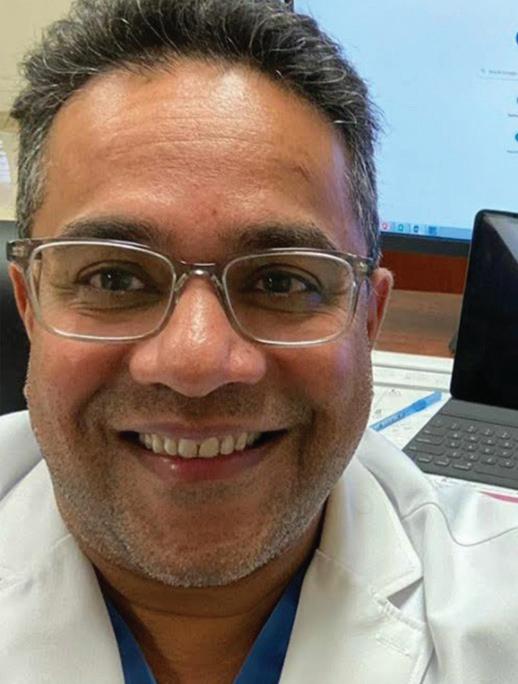
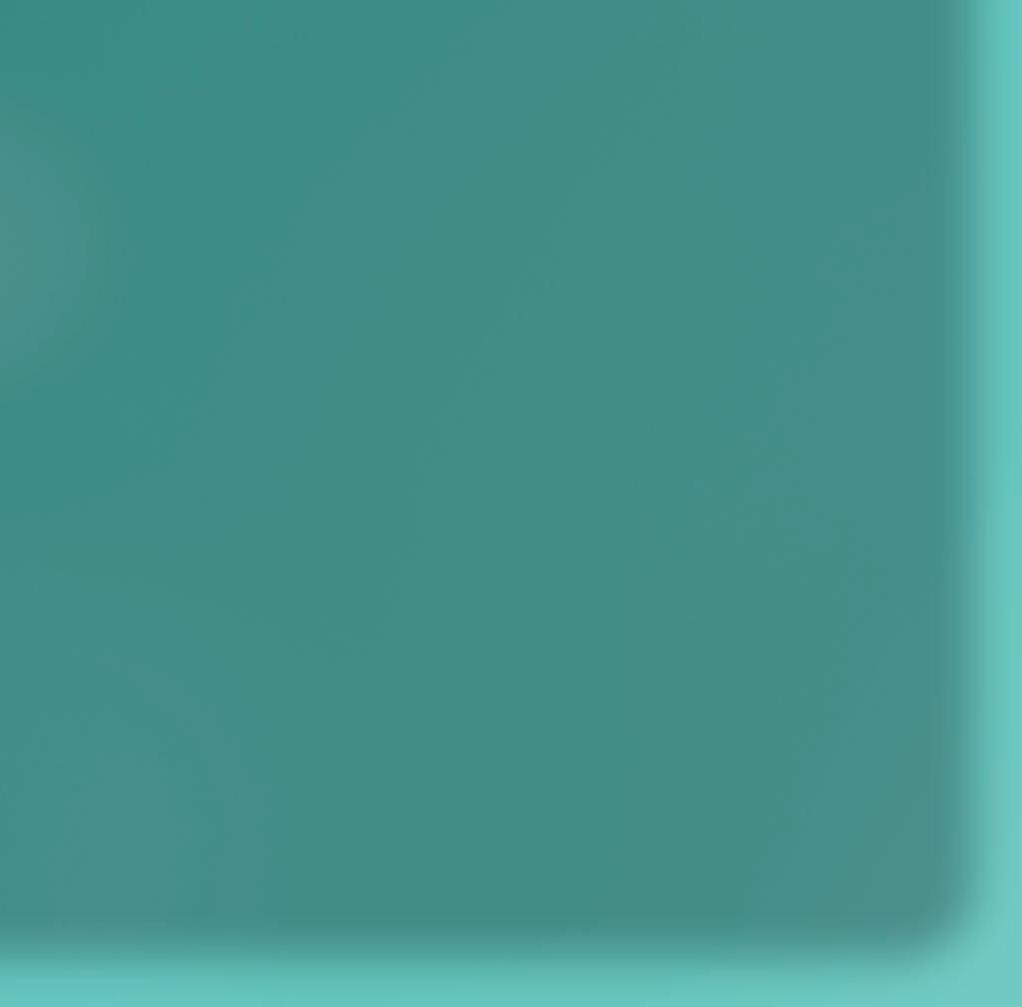

“O ur ICU volume surged over 400 percnt in a two-week period, and fi nding the resources to support that surge really required all hands on deck.
However, ‘all hands on deck’ has taken on an entirely new meaning in the midst of COVID-19. From the person who greets you at the front door, to the environmental services staff who ensure the hospital is safe and sanitized, to the people in dietary services, you realize we are all risking our lives and confronting this disease together.
This was a great sight, to see people giving world-class care without ever forgetting to be human.”
MD, Internist and Hospitalist, recovered COVID-19 patient “F rom the time the crisis started, I was taking care of many, many patients with COVID-19 and I got sick. I knew I had the coronavirus—I had all the symptoms—but I just stayed home and tried to take care of myself.
As the disease progressed, symptoms became more severe—shortness of breath, nonstop fever, chest pain and difficulty breathing. Finally, I knew I had to go to the hospital. And I’m so glad I did, because not only did my COVID-19 test come back positive, I also had a very bad case of bacterial pneumonia.
So then I was in the same unit where, 10 days earlier, I had been part of the Rapid Response Team. As sick as I was, I knew what was going on with patients whose conditions changed rapidly and would require critical care.
That was a really rough experience, psychologically and emotionally. As a doctor, you know in the back of your mind that these patients in cardiac arrest had been having the same symptoms you now have. I was, obviously, very afraid.
At the same time, I knew I was being taken care of by phenomenal doctors and nurses at Clara Maass, and they were fantastic to me and everyone they treated. I am so thankful to them and to every single person, from technicians to housekeeping to security to transport.
I was released after 10 days, and I was so happy and relieved. The worst day, however, was the day after that. That was when we learned that two of our colleagues had died.
My whole way of looking at life has changed after this experience. I value the time I spend with my family and the people I cherish. I am reminded of why I chose to be a physician: to help people and to be compassionate.
Two weeks after I was released, I went back to work. We’re going to keep doing what we’re doing and fighting the good fight.”











